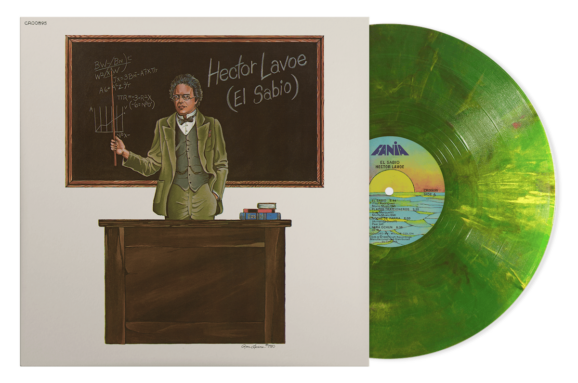As if deliberately choosing to at once mirror and pay homage to the career arc of the original six-man lineup of the Allman Brothers, the 2003 Band released One Way Out – Live at the Beacon Theater. With the retrospect of two decades, the group simultaneously did justice to their antecedents as well as their own shared history.
With hindsight too, the rationale behind yet another live Allman Brothers album becomes all the more clear. While 1971’s At Fillmore East remains the definitive recording of the seminal Southern blues-rockers and their tenure on Epic Records yielded two more concert collections to ratify the validity of their 1989 reunion (An Evening with …First Set and Second Set), the rejuvenation of the ABB in the new millennium deserved documentation.
In the wake of co-founder/guitarist/composer Dickey Betts’ ouster the year prior, guitarist/vocalist Warren Haynes had returned to the fold for the 2001 Beacon Theatre run. In doing so, then remaining within the fold for the remainder of this ensemble’s existence, the once and future leader of Gov’t Mule reignited the chemistry of the entire ensemble and especially his own fretboard partnership with Derek Trucks.
Those two, along with the other five members, then spent the next two years honing their instrumental relationship(s) to the point the group felt sufficiently confident to record Hittin’ The Note, the first ABB studio album in nine years. Released the year before this concert set, that long-player’s virtues are also fully in evidence throughout the two CDs of material from the stage.
In keeping with a longstanding tradition, blues from the likes of Sonny Boy Williamson (“Good Morning Little Schoolgirl”) and made famous by Freddie King (“Woman Across The River,” resides comfortably next to original Allmans’ fare from various periods of the band’s existence. It is a well-rounded depiction of the varied strengths of a unit whose individual and collective skills rivaled and, in some cases exceeded, that of preceding personnel lineups.
Staples in the ABB repertoire are invariably arranged with a new twist on them. Take the de rigueur opener, “Statesboro Blues,” where Derek Trucks plays a slide guitar so savage and sweet, it favorably recalls his famous fretboard forebear, the late Duane Allman. At the same time, Gregg Allman belts out the lyrics and his barrelhouse piano is more prominent than in previous versions.
A cull from the mainstream breakthrough LP, 1973’s Brothers and Sisters, “Wasted Words,” is given an even more ingenious reworking. Taken at a jaunty gait, the septet ratifies how a Latin motif had become a trademark in the Brothers’ songbook at this point. Meanwhile, this take of “Ain’t Wastin’ Time No More,” the opener of 1972’s Eat A Peach double album, for instance, finds the resolute undercurrent of Allman’s otherwise languorous singing corresponding to riveting intros and solos of Trucks’.
To that same musicianly point, Haynes flashes a jagged solo after his wailing tandem work with Derek on “Don’t Keep Me Wonderin’.” An excerpt from the sophomore ABB studio LP Idlewild South also finds drummers Butch Trucks and Jaimoe, plus percussionist Marc Quinones, meshing their respective rhythm patterns as Oteil Burbridge offers all the insistent mobility of original bassist Berry Oakley, albeit with a funkier attack.
Newer material included on One Way Out is of a piece with ABB standards such as those cuts and “Midnight Rider.” “Rockin’ Horse,” for instance, is Warren’s co-write with Gregg and former Brothers Allen Woody along with unsung guitar hero Jack Pearson,. Like “Desdemona,” the performance is interwoven with R&B and jazz elements to provide further nuance through world-weary vocals of Gregg’s that give way to crescendos of a fierce intensity.
As the namesake of the band and its nominal figurehead, Allman’s prestige was further elevated by the whole group’s increasingly heightened public profile of the early 2000s. It’s hardly a coincidence then that, at this time of renewal, the vocalist/songwriter/keyboardist sounded so robust, whether wailing out “Trouble No More” or demonstrating jocular independence via his delivery of “Come and Go Blues.”
The subtlety of the younger Allman Brother’s vocal phrasing is on par with the vigor of his vocals throughout Live At The Beacon Theatre. And Gregg’s participation in new material, as both composer and performer, is equally inspired: his gruff voice radiates a knowing air throughout “High Cost of Low Living,” then turns to a virtual whisper on what is perhaps the best song he ever wrote, “Old Before My Time.”
At the time these performances were recorded, in March of 2003 at the Upper West Side New York City venue the ABB came to favor, it appeared the band was about to peak in its process of revitalization. But the perspective of twenty years clarifies continued growth: the one-two punch that closes this disc two, “Dreams” and “Whipping Post,” became even further sophisticated. All the intricate detail of comes through in the impeccable audio production of Haynes and Michael Barbiero, the team that had also fulfilled those roles on the aforementioned studio project.
As the years progressed, the final aggregation known as ‘the Allman Brothers Band’ added songs to their repertoire, continually finding new ways of interpreting novel material such as that of Miles Davis and Jimi Hendrix. Thus, as much as One Way Out captures a moment in time, it also hints at the processes that would allow this entity to (more or less) flourish for another decade-plus past this point.
Like the various other configurations existing under the increasingly iconic moniker for forty-five years, this particular collective taught itself how to thrive on change, a dynamic never more clear than on this two-and-a-half hours of playing time.









